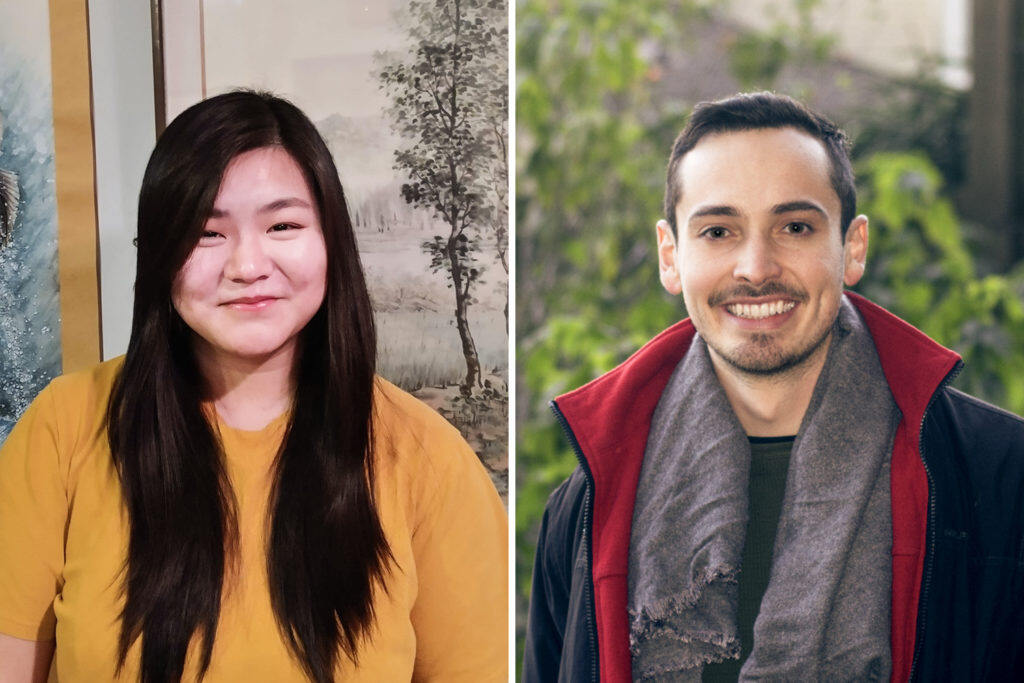

Two people with Stanford affiliations, including an undergraduate student and an alumnus, have been awarded 2021 Gates Cambridge Scholarships for graduate studies at the University of Cambridge in England.
They are among the 24 Americans who were recently awarded scholarships by the Gates Cambridge Trust during its U.S. selection round. The full Class of 2021 will be announced in May when the organization announces its cohort of international scholars.
The Bill and Melinda Gates Foundation established the Gates Cambridge Scholarship program in 2000 to enable outstanding students from outside the United Kingdom to pursue full-time graduate studies in any subject at the University of Cambridge.
The program aims to build a global network of future leaders committed to improving the lives of others.
The two 2021 Gates Cambridge Scholars with Stanford affiliations are:
Heejung Wang Chung, 22, of Cupertino, California, is a senior majoring in computer science and minoring in materials science in the School of Engineering.
At the University of Cambridge, Chung will pursue a master of philosophy degree in scientific computing, with a focus on contributing to the design of more efficient battery storage systems using generative machine learning models.
After earning a master’s degree, she plans to pursue a doctorate to study the intersection between computational methods and materials science as the two fields apply to renewable energy research.
At Stanford, Chung is a member of the Materials Computation and Theory Group, where she performed research classifying the local crystal structure of simulated atoms using machine learning.
She has also participated in the AI (Artificial Intelligence) for Climate Change Bootcamp with the Stanford Machine Learning Group, where her research is focused on automated dataset creation to facilitate urban transportation planning.
Outside of academics, Chung is a member of Stanford Taiko, a student music group dedicated to the art of Japanese-styled ensemble drumming. She is also co-president of the Stanford Ceramics Club, which offers studio membership and classes to the Stanford community.
Richard Diehl Martinez, 24, of San Francisco, is a Stanford alumnus who earned a master’s degree in computer science in 2020 and a bachelor’s degree in management science and engineering in 2018.
At the University of Cambridge, Diehl Martinez plans to pursue a doctorate in computer science and use insights from how the human brain understands language to improve machine learning and natural language processing models.
“By using similar mechanisms used in the brain to process language, I believe it is possible to build models that require less data and computation and which can accordingly be more effectively applied to low-resource languages and domains,” he said.
Currently, Diehl Martinez is working as a machine learning researcher at Amazon Alexa, in San Francisco. At Amazon, he develops neural networks to improve the speech recognition capabilities of the Alexa virtual assistant.
As a Stanford student, Diehl Martinez worked with Dan Jurafsky, a professor of linguistics in the School of Humanities and Sciences, and a professor of computer science in the School of Engineering, to build deep learning models to automatically detect and remove bias in news articles. He is a co-author of the paper summarizing that work, Automatically Neutralizing Subjective Bias in Text, which was published in the Proceedings of the AAAI Conference on Artificial Intelligence in 2020.








































